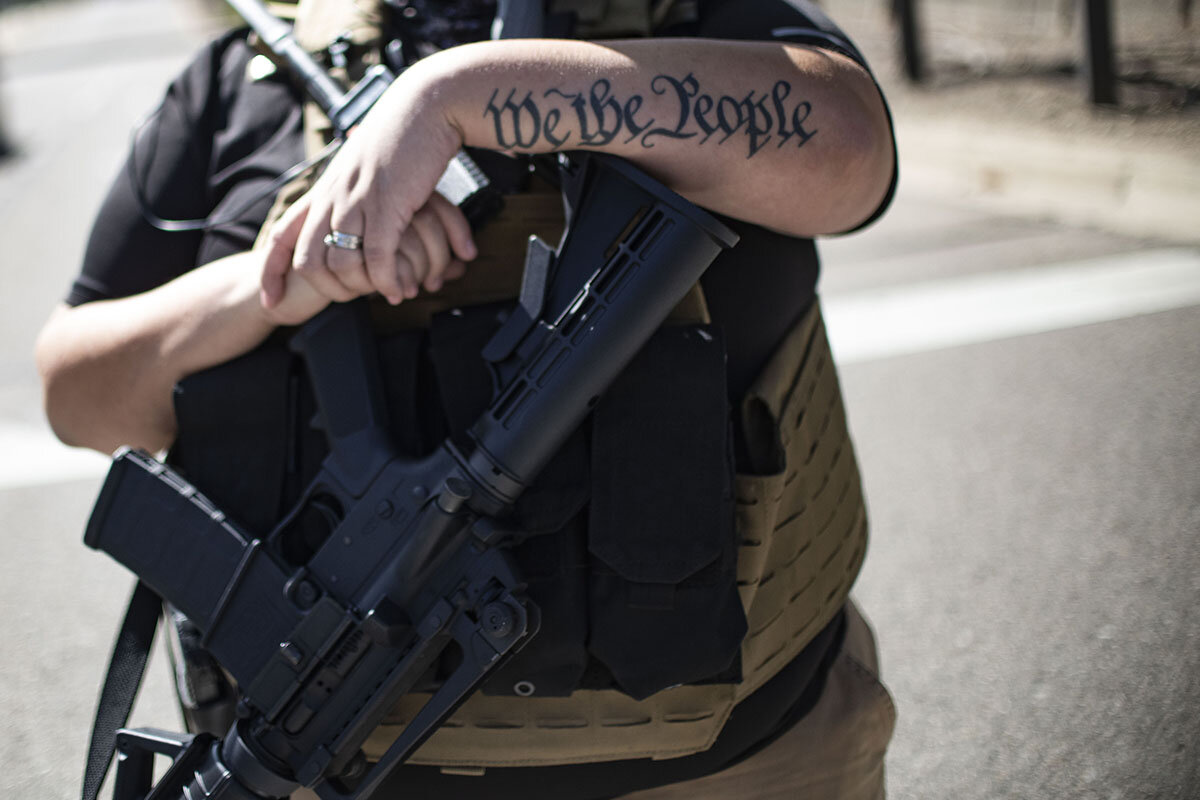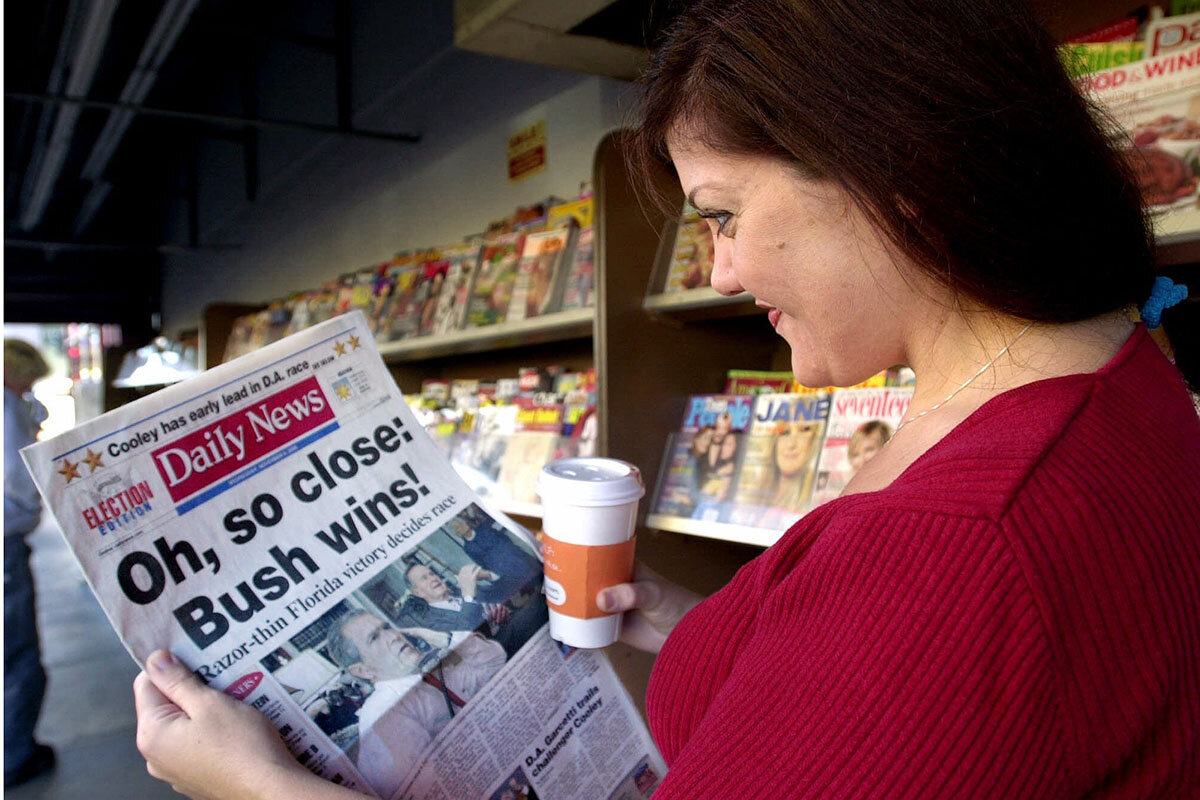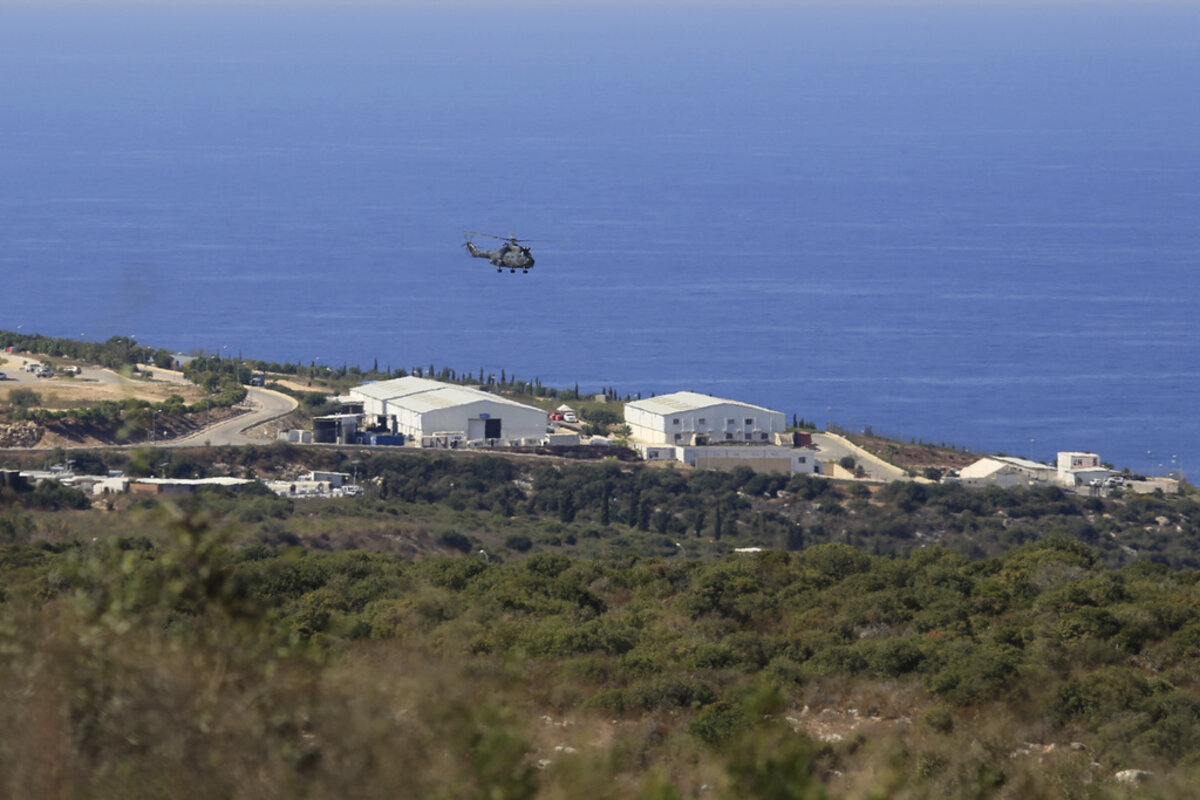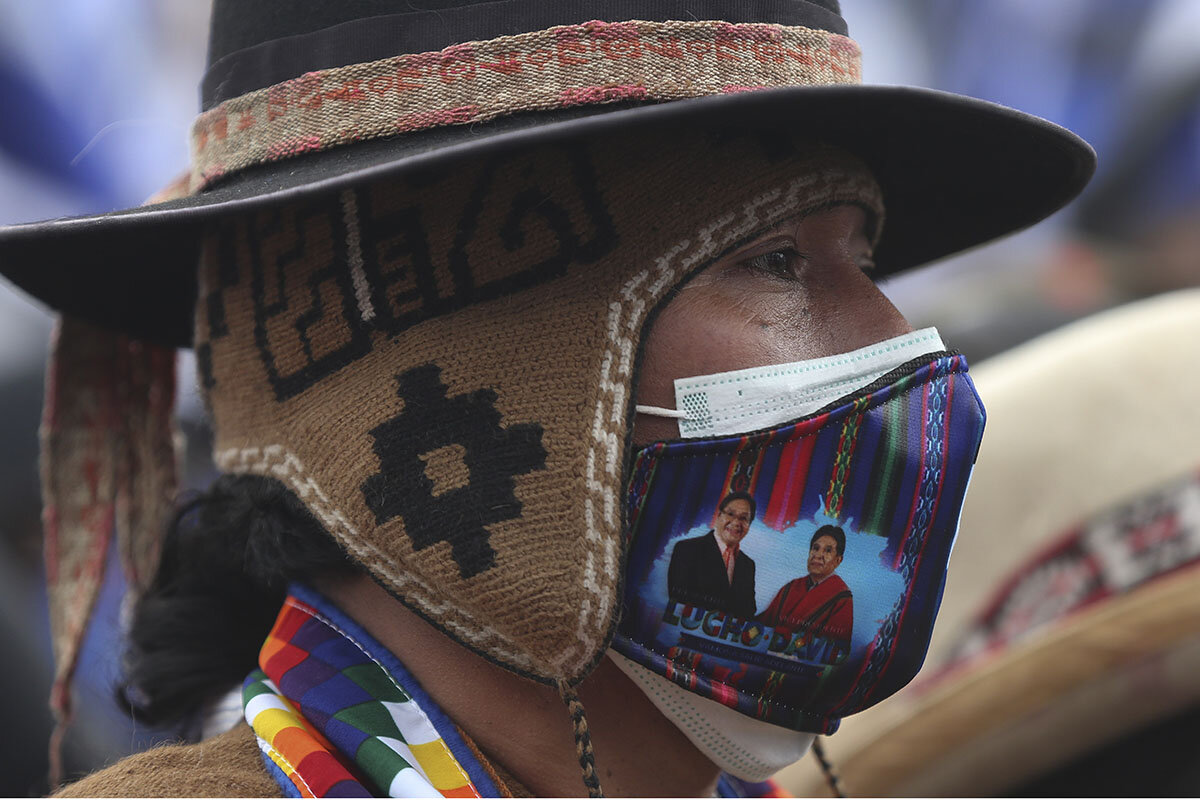Events in Michigan and beyond bring an uncomfortable question to the fore: Under what authority do private militias operate in America? And at what risk to democracy?
Monitor Daily Podcast
- Follow us:
- Apple Podcasts
- Spotify
- RSS Feed
- Download
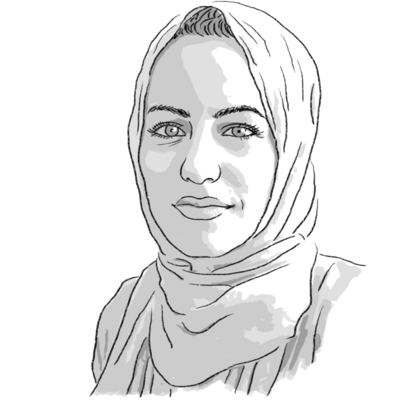 Husna Haq
Husna Haq
This fall I got a lesson in perseverance from an unlikely teacher: my 4-year-old son.
After six months away from school nestled in the cozy confines of our home, he was – like more than a few children these days – nervous to return to school this September. OK, he was downright hysterical. Morning drop-offs were grim affairs in which we plastered reassuring smiles on our faces as we pried our howling preschooler’s arms from around our necks, then worried all the way home. By Day Five, I was convinced we’d be dropping a teary teen off to college in 15 years.
But in the calmer moments, we talked. About how bravery isn’t the absence of fear, but of knowing our capabilities, and doing the scary thing anyway. “I know it’s hard for you, but I know you can handle it,” I’d tell my kid as he pushed toy excavators on the ground and pretended not to listen. But he was listening. On Day Six, we were stunned when he gave us a smile behind his favorite yellow mask and walked in to school.
During a year marked by exceptional turmoil with no seeming end in sight, it’s easy to give up hope and give in to fear. But a brave little boy reminded me to keep going – to do the scary thing, have the difficult conversation, sit with discomfort – and to know that in the very act of persevering lies progress.




